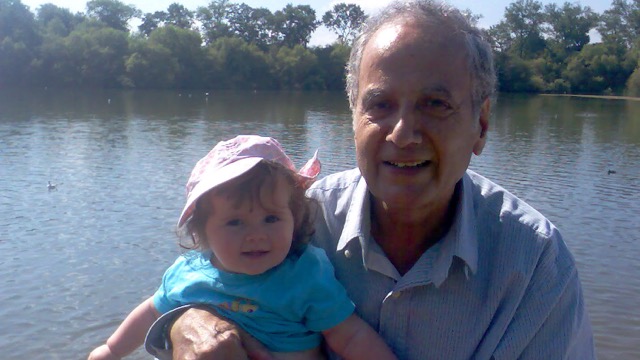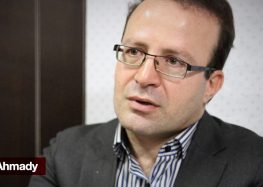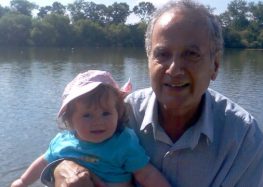Ailing British-Iranian Grandpa Serving 7-Year Prison Sentence Denied Medical Leave

Kamal Foroughi, a 77-year-old ailing British-Iranian dual citizen and former civil engineer incarcerated at Evin Prison in Tehran since May 2011, has been denied previously promised and urgently required extended medical leave, his son, Kamran Foroughi, told the Campaign for Human Rights in Iran.
“For the Iranian authorities we have a simple message: Please let Dad come home,” said Kamran Foroughi on January 20, 2017. “Please let Dad live his remaining days with his family and not die alone in Evin prison.”
“Dad was granted medical leave (outside the hospital) on January 1 and we are very grateful,” he added. “However, he was told that he needs to go back to the hospital for more tests.”
“We remain extremely worried about his health,” continued Kamran Foroughi. “Most recently, we understand that Dad’s lawyer was told by the Prosecutor’s Office in a meeting on January 7 that he would be released by January 12 on medical furlough (temporary leave), but he is still in Evin.”
Since 2014 in particular and despite President Hassan Rouhani’s encouragement of expatriate citizens to return to Iran, dual citizens or Iranians with foreign residency status have been arrested with increasing frequency by the Revolutionary Guards or agents of the Intelligence Ministry and imprisoned for espionage-related charges with little or no access to legal counsel.
Kamal Foroughi was arrested on May 5, 2011 by the Revolutionary Guards at his apartment in Tehran and held in solitary confinement for 18 months in the Revolutionary Guard-controlled Ward 2-A of Evin Prison, according to his son. Judge Abolqasem Salavati of Branch 15 of the Revolutionary Court eventually sentenced him to seven years in prison for “espionage” and one year in prison for “possession of alcoholic drinks at home.” The latter sentence was ultimately dropped.
“Dad has been eligible for release each of the last 1,100 days,” said Kamran Foroughi, citing Article 58 of Iran’s Islamic Penal Code, which allows prisoners to apply for early release after having served a third of their sentence.
“During these years, my father’s lawyer filed more than 50 requests for my father’s release and the Tehran Prosecutor’s Office gave a verbal pledge that he would go free, but so far nothing has happened,” Kamran Foroughi told the Campaign in October 2016.
“His health is concerning,” he added. “He was diagnosed about two months ago with cataracts in each eye and needs an urgent operation that is very straightforward, simple and quick to do at the hospital. When he was diagnosed, the specialist said he would get the operation very soon, but he still hasn’t had it and we are worried that the longer they leave it, the more his eyesight will deteriorate and the more he will be at risk for permanent blindness.”
The Iranian Judiciary’s ongoing imprisonment of dual nationals contradicts Rouhani’s repeated calls for expatriates to return to Iran. The growing number of arrests also reflects hardliners’ efforts to prevent the engagement with the West that the Rouhani administration has sought to encourage.
Iranian-British dual citizen Nazanin Zaghari-Ratcliffe, sentenced to five years in prison in September 2016, has been held since April 2016; Iranian-American businessman Siamak Namazi, held since October 15, 2015 and his father, 80-year-old Bagher Namazi, held since February 2016, have both been sentenced to ten years in prison; Iranian-American Robin (Reza) Shahini, held since July 2016; has been sentenced to 18 years in prison, British-Iranian Roya Saberi Nobakht, held since October 2013, has been sentenced to seven years; and Iranian-Austrian dual citizen Kamran Ghaderi, held since January 2016, has been sentenced to 10 years in prison.
Iranian-born Swedish resident Ahmadreza Djalali; held since April 2016; and Iranian-American Karan Vafadari; held since July 2016, have not been sentenced yet.




